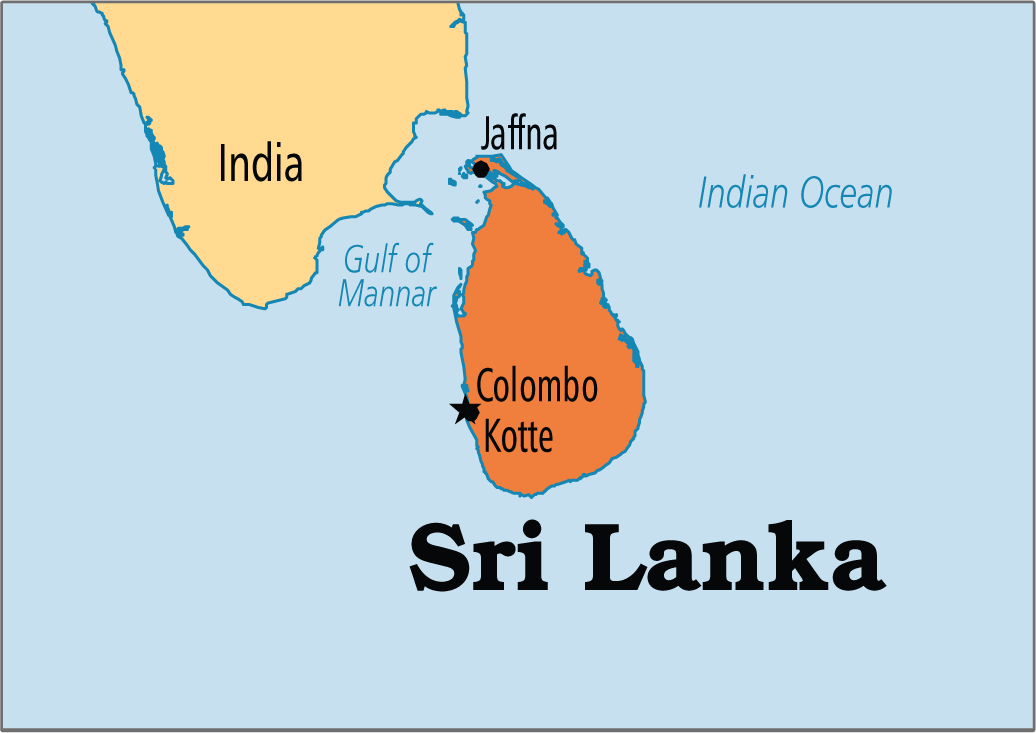India- Sri Lanka | 19 Jan 2021
Why in News
Recently, the Government of Srilanka decided to rebuild a demolished memorial at Jaffna University after the High Commissioner of India’s concerns.
- The demolition of a memorial paying tribute to Tamil civilians killed during the civil war between LTTE and the Sri Lankan Army in 2009 has brought attention to unaddressed issues of minority rights of Tamilians in Srilanka again in the India-Srilanka relations.
Key Points
- Issues of Tamilians in Srilanka
- Denial of Citizenship: The problem of the Srilankan Tamils began earlier than the 1950s. After independence in 1948 the Srilankan government felt that the Tamils were not Srilankan because they had Indian ancestry.
- The majority of the Tamils were denied Srilankan citizenship due to which most of the Tamils continued to live in poverty in the tea estates of Srilanka.
- Linguistic Discrimination: The conflict between Sinhalese and Tamils in Sri Lanka started in 1956 when Sinhala was made the official language by the country's President and large scale discrimination began against the Tamils.
- Religious Discrimination: The discrimination against the Tamil population continued throughout the 1960s as Buddhism was given the primary place in the state and the number of Tamils employed by the state and admitted into institutions of higher learning was greatly restricted.
- Intensified Movements: During this period the Tamils responded to their oppression largely through a political and a non-violent protest movement. In the 1970s, however, there was an increased trend towards Tamil separatism and militancy that gave rise to a terrorist organization called LTTE.
- Liberation Tigers of Tamil Eelam (LTTE): It was formed in 1976 as the self-styled "national freedom movement of the people of Tamil Eelam" and began a guerilla war on the government and administration.
- It undertook numerous terrorist activities in Srilanka especially against the Sinhalese and executed the assassination of Rajiv Gandhi (the ex Prime Minister of India).
- After a long strife, and millions of casualties, the civil war with LTTE ended in 2009. India played an important role in helping Srilankan to uproot terrorism from its homeland.
- Denial of Citizenship: The problem of the Srilankan Tamils began earlier than the 1950s. After independence in 1948 the Srilankan government felt that the Tamils were not Srilankan because they had Indian ancestry.
- Concerns for India:
- Rehabilitation of Refugees: A lot of Srilankan Tamils who evaded from Srilankan civil war (2009) are seeking refuge in Tamil Nadu. They are not returning in fear of being targeted again. It is a challenge for India to rehabilitate them.
- Sentiments of Indian Tamils: A number of protests and criticism is drawn at the end of Indian Government for overlooking the plight of Srilankan Tamils to maintain good relationship with Srilanka.
- Strategic interests vs Tamil question: Often India has to trade off on the question of Tamilian minority rights over strategic issues to protect its economic interests in its neighborhood and to counter Chinese influence in Indian Ocean.
- India - Sri Lanka Confidence Building Measures:
- Currency Swap Agreements: The Reserve Bank of India (RBI) had signed an agreement for extending a USD 400 million currency swap facility to Sri Lanka to boost the foreign reserves and ensure financial stability of the country, which is badly hit by Covid-19 pandemic.
- High Level Exchanges: Political relations between India and Sri Lanka have been marked by high-level exchanges of visits at regular intervals.
- India’s Support against Terrorism: During the course of the civil war, India supported the right of the Government of Sri Lanka to act against terrorist forces.
- The Indian Housing Project: It is Government of India’s flagship project of developmental assistance to Sri Lanka. Its initial commitment is to build 50,000 houses for those affected by the civil war as well as for the estate workers in the plantation areas.
- Addressing Fishermen Issue: Given the proximity of the territorial waters of both countries, especially in the Palk Straits and the Gulf of Mannar, incidents of straying of fishermen are common.
- Both countries have agreed on certain practical arrangements to deal with the issue of bona fide fishermen of either side crossing the International Maritime Boundary Line.
- Joint Exercises: India and Sri Lanka conduct joint Military (Mitra Shakti) and Naval exercise (SLINEX).
- Participation in Groupings: Sri Lanka is also a member of regional groupings like BIMSTEC (Bay of Bengal Initiative for Multi-Sectoral Technical and Economic Cooperation) and SAARC in which India plays a leading role.
- SAGAR: Srilanka supports India’s concern for the security of Indian ocean with its ‘Neighbourhood First’ policy and SAGAR (Security and Growth for all in the Region).
- Line of Credit: India has extended a $400 million line of credit to Sri Lanka to help strengthen its infrastructure and economy. An additional $50 million to help Sri Lanka combat terrorism.

